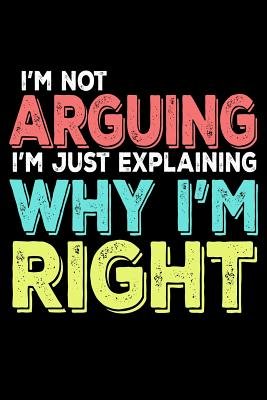
One of the most common statements made by Evangelicals is this: The Bible Says . . . Evangelicals believe the Bible is the inerrant, infallible Word of God, meant to be read and interpreted literally. It means what it says and says what it means. If these claims are true, why do Evangelicals have such varied beliefs, even on the basics such as salvation, baptism, membership, and communion? How do we determine which sect is right? If the destiny of our eternal soul rests on us believing the right things, shouldn’t Christians speak with one mind on the core doctrines of Christianity?
The confusion of beliefs is a sign that Christianity is a human construct. The Bible doesn’t say anything. It is a book of words that must be read, interpreted, and explained. When I say, “The Bible Says . . .” it should be understood that I’m speaking from my past theological training, experiences, and interpretations. In other words, the Bible says what Bruce says it does. This is true for EVERY Christian. If there’s one thing I have learned about the Bible, it is this: It can be used to prove almost anything. Put a Calvinist, Arminian, Campbellite, Independent Baptist, Apostolic, Charismatic, Pentecostal, and Episcopalian in a room and ask them fifty theological questions. What will you get? Countless interpretations and explanations, each believing they are right. They all can’t be right, so how do we determine which sect/church preaches the True Christianity?
Sadly, many Evangelicals believe that their understanding of the Bible = God says. How can they possibly know this? They will authoritatively claim that the words of the Bible are God’s words, and when they speak the words of the Good Book, they are speaking God’s words. That’s why I have had countless Christians tell me when I object to something they said, “God said it, I didn’t.” Oh, the arrogance behind such a claim. I know of no way that someone can infallibly know that what they are reading or saying is the words of God. Humans wrote the Bible, and for 2,000 years now, Christians have been interpreting and reinterpreting the Bible. Every generation of believers shapes, molds, and interprets the Bible based on their personal opinions, beliefs, and worldviews. Even with intractable sects such as the Independent Fundamentalist Baptist church movement, beliefs and practices change over time. How they define “old-fashioned” is very different today from what it was sixty years ago. As an IFB teen in the 1960s and 1970s, my pastors declared that “Godly” men didn’t have facial hair or long hair. Today, it is common to see IFB men with beards and long hair. The same goes for dress standards. Women wearing pants was verboten years ago. Today, it is not uncommon to see Baptist women wearing slacks.
Change is inevitable, even among groups who think that Jesus is the same yesterday, today, and forever. A few years back, my partner’s IFB uncle, Jim Dennis, died after pastoring the Newark Baptist Temple for fifty years. Polly’s parents attended the church for decades. Polly’s mom told me that she was proud of the fact that Jim believed the same things he did when he died as he did when he was a young preacher. In her mind, Jim was a pillar of sound doctrine and practice; a man who was steadfast in his beliefs and behavior. This, of course. was patently untrue. I can point to numerous beliefs and practices that Jim changed his mind about over the years.
I would argue that changing our beliefs is essential to personal growth. If my life story is anything, it is a testimony to the power and importance of change. As a Christian, my beliefs changed a lot. When I came to a new or different understanding of the Bible, I was unafraid to share it. This, of course, led to me being called a liberal or an apostate. All I knew to do was to honestly align my life with my changed beliefs. And I don’t live differently today. How about you? Have your beliefs and practices changed over the years? Do you have Christian friends who pride themselves on not changing their beliefs? Please share your experiences in the comment section.
Let me conclude this post with a short video by Dr. Dan McClellan on the subject, “No, the Bible Doesn’t Say So.”
Dan has a new book coming out, The Bible Says So: What We Get Right (and Wrong) about Scripture’s Most Controversial Subjects. Dan does an awesome job tackling many of the claims Evangelicals make about the Bible.
Bruce Gerencser, 68, lives in rural Northwest Ohio with his wife of 47 years. He and his wife have six grown children and sixteen grandchildren. Bruce pastored Evangelical churches for twenty-five years in Ohio, Texas, and Michigan. Bruce left the ministry in 2005, and in 2008 he left Christianity. Bruce is now a humanist and an atheist.
Your comments are welcome and appreciated. All first-time comments are moderated. Please read the commenting rules before commenting.
You can email Bruce via the Contact Form.

